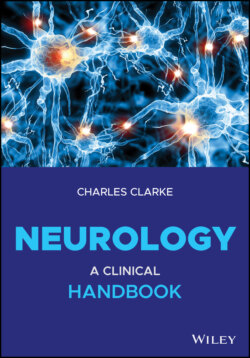Читать книгу Neurology - Charles H. Clarke - Страница 102
Neurological Examination: Preliminary Assessment
ОглавлениеGordon Holmes wrote in 1946: ‘More can often be learned of a patient’s disabilities by observing his ordinary actions, as dressing and undressing, walking when apparently unobserved, than by specific tests’. We rely on this approach intuitively – it is the way we form impressions and gauge people. Refine these skills. Think about:
Greeting, manner, orientation, attention, mental state, mood, personal hygiene, dress
Cognitive clues – turning to a companion before answering implies uncertainty
Speech, language, facial appearance
Gait, stance, clumsiness, weakness, involuntary movements, sensory symptoms
Risk factors, lifestyle, tobacco, alcohol, drugs, religion, illness beliefs, fears
Disability, aids, state benefits, aspects of daily living, driving, employment, sports
Endocrine or other clues – hypothyroidism, hypopituitarism, bruises
Relations with GP, hospital staff, attitudes towards treatment, expectations.
